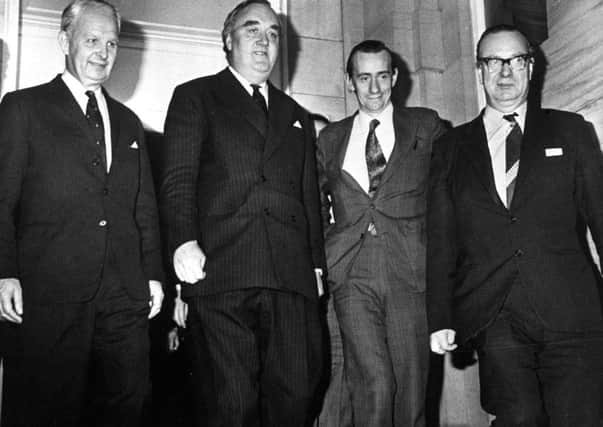Trevor Ringland: There many histories of the Troubles, secret or not and often ignored, including that of the heroes who stopped civil war


There was the group of youths — where I dare not say — who whispered to a police patrol to stop and search them. They warned the officers to turn left at the next street because an IRA ambush was waiting for them further down the road they were on.
There were those who wrote letters after each atrocity, expressing their sympathies and emphasising that the crimes were not carried out in their name. These small gestures should not be underestimated.
Advertisement
Hide AdAdvertisement
Hide AdHow about those who demanded no revenge, when an urge for vengeance would have been understandable? Michael and Bridie McGoldrick, Gordon Wilson and so many others.


While some religious leaders were fuelling or excusing conflict, we had the Christianity of Corrymeela and leaders such as Rev John Dunlop, Rev Ken Newell and Father Gerry Reynolds living out the obligation of loving your neighbour and showing respect rather than sectarian hatred.
The Peace People and thousands of others showed community leadership, emphasising the importance of building rather than destroying relationships. Sports organisations carried on offering young people a constructive outlet, whether it was football, rugby, GAA, boxing or other disciplines.
We had civic leaders, like Maurice Hayes, Baroness Blood or the integrated education movement. Countless groups and individuals worked hard to maintain as peaceful a society as possible, while businesses kept the economy going in the most difficult circumstances.
Advertisement
Hide AdAdvertisement
Hide AdThere were even political leaders who showed a different way. The speeches of Terence O’Neill in the sixties speak of an opportunity missed or Sean Lemass, Paddy Devlin, Gerry Fitt, Seamus Mallon, Oliver Napier and Brian Faulkner, to mention just a few.
It’s easy to forget that informers, who were often flawed heroes, saved many more lives than they cost.
Finally, the real collusion took place between the police, army, the judiciary and others in the justice system, to preserve legal process in the face of lethal threats to them and their families.
They knew who was trying to murder them and the rest of us. They knew every detail about their lives, what they did and even what they had for breakfast, but they stuck to the rule of law despite the consequences. Other narratives ignore the facts and fail to recognise that their ambition was to protect society and bring conflict to an end.
Advertisement
Hide AdAdvertisement
Hide AdWhen we talk about winners or losers, it’s important to recognise that we all lost because an unnecessary conflict occurred. Thousands were injured and killed, people were maimed, lives were blighted and there were many resulting suicides, which are a largely untold story.
But unlike many other parts of the world, we avoided a civil war, thanks to the bravery of all those extraordinary people who held to the rule of law and built relationships while all around others were destroying them.
It’s an inconvenient truth, but they won the conflict, and it is important going forward that they win the peace, whatever one’s constitutional preference.
Trevor Ringland, Holywood